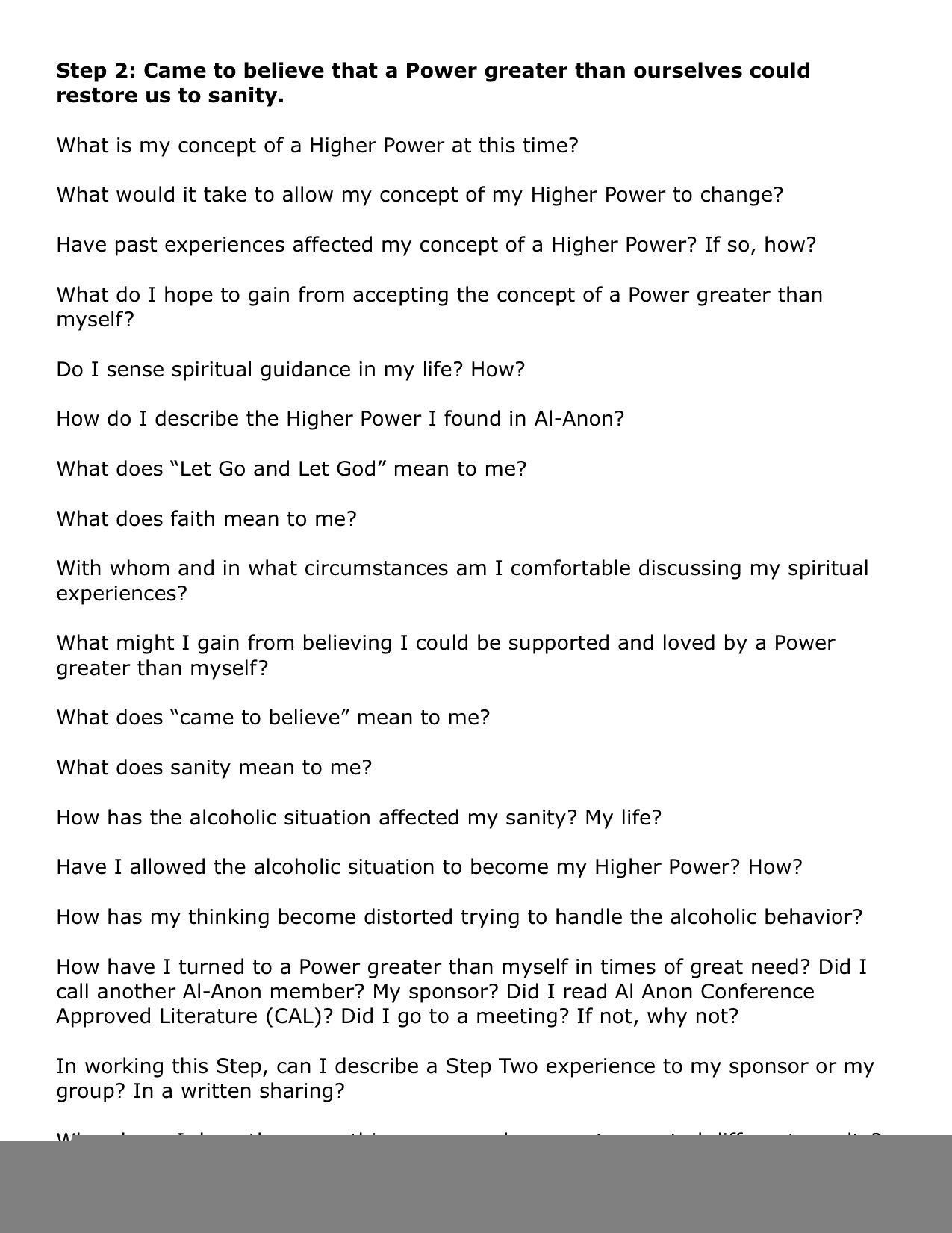Alcoholics Anonymous (AA) is a support group for individuals struggling with alcohol addiction. AA worksheets are tools that can help members of AA navigate their recovery journey, reflect on their progress, and set goals for the future. These worksheets provide structure and guidance for individuals working towards sobriety.
One of the most common types of AA worksheets is the daily inventory worksheet. This worksheet prompts individuals to reflect on their thoughts, feelings, and actions throughout the day. By completing this worksheet regularly, individuals can identify patterns, triggers, and areas for improvement in their recovery journey.
Another type of AA worksheet is the relapse prevention worksheet. This worksheet helps individuals identify potential triggers for relapse, develop coping strategies, and create a plan for how to avoid relapse in the future. By working through this worksheet, individuals can build resilience and strengthen their sobriety.
AA worksheets also often include goal-setting exercises. These worksheets encourage individuals to set specific, measurable, achievable, relevant, and time-bound (SMART) goals for their recovery. By setting goals and tracking their progress, individuals can stay motivated and focused on their journey towards sobriety.
In addition to these worksheets, AA groups may also provide worksheets on topics such as gratitude, forgiveness, self-care, and communication skills. These worksheets can help individuals develop important life skills and cultivate a positive mindset as they work towards maintaining their sobriety.
Overall, AA worksheets are valuable tools that can support individuals in their recovery from alcohol addiction. By using these worksheets, individuals can gain insight into their thoughts and behaviors, develop coping strategies, set goals, and build resilience. The structured approach of these worksheets can help individuals stay focused and committed to their sobriety journey.
